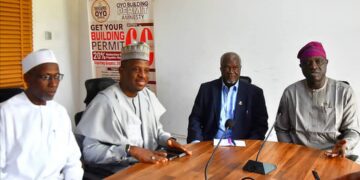In the pursuit of sustainable industrial growth, many regions around the world have come to realize that infrastructure and investment are not enough. Ethical leadership—characterized by integrity, transparency, and a people-centered vision—plays a pivotal role. As Oyo State stands on the threshold of industrial rejuvenation, it is imperative to draw lessons from countries that have walked this path successfully. Singapore and Rwanda provide illuminating examples, and Oyo State’s Governor, Seyi Makinde, offers a compelling local case. This piece examines the leadership models that have powered ethical industrialization, contrasts them with instances of compromised justice and institutional failure, and ultimately calls on citizens to champion a culture of ethics.
For my discussion today, Singapore still represents a blueprint of industrial might and ethical governance. Singapore’s transformation from a colonial backwater in the 1960s into a global economic powerhouse today is nothing short of extraordinary. The driving force behind this miracle was the ethical leadership of the late Lee Kuan Yew, the country’s founding Prime Minister.
Lee understood early on, that sustainable economic growth hinged on eradicating corruption and instilling a culture of meritocracy. His government implemented strict anti-corruption laws, empowered independent agencies like the Corrupt Practices Investigation Bureau (CPIB), and emphasized competence and efficiency in public service.
Industrialization in Singapore was not left to chance. Strategic partnerships with multinational corporations were fostered under transparent conditions. The Jurong Industrial Estate, once a swamp, became a model of organized industrial development, thanks to state planning devoid of rent-seeking behavior.
Importantly, the nation’s financial institutions, notably the Monetary Authority of Singapore (MAS), were built on principles of trust and rigorous oversight. MAS set standards that made Singapore one of the safest places in Asia for Foreign Direct Investment (FDI). In a society where leadership showed the way by living modestly and avoiding the trappings of corruption, industrial growth was both rapid and inclusive.
Rwanda, our darling African example has also grown from ashes to aspiration. Few countries have demonstrated the power of ethical leadership in post-conflict industrialization as Rwanda. Under the leadership of President Paul Kagame, the nation emerged from the 1994 genocide with a determined commitment to accountability and development.
Kagame’s administration is often noted for its zero-tolerance stance on corruption and its emphasis on clean governance. The Rwanda Development Board (RDB) and Rwanda’s National Public Prosecution Authority serve as key institutions that ensure investments are vetted transparently and the rule of law is upheld.
Industrially, Rwanda has prioritized technology, manufacturing, and agro-processing sectors, with special economic zones designed to attract investors through simplified and honest procedures. The Kagame government’s refusal to indulge in favoritism or bribery has made Rwanda one of the most attractive investment destinations in Africa.
The National Bank of Rwanda is known for its independence and its role in stabilizing the macroeconomic environment. Through ethical stewardship, Rwanda has achieved sustained growth without the scandals that plague many developing economies.
Gratefully, we have in Oyo State, His Excellency Governor Seyi Makinde who embodies the promise of ethical industrialisation. In Nigeria, Oyo State has quietly begun crafting its own industrial revolution. At the heart of this transformation is Governor Seyi Makinde, a leader whose administration has been widely lauded for transparency, fiscal prudence, and citizen-centered governance.
Makinde’s declaration of assets upon assuming office in 2019 was an unprecedented move in Nigeria’s political landscape. He further distinguished himself by allocating significant portions of the state budget to education, healthcare, and infrastructure without credible allegations of financial impropriety.
Under his leadership, the Ilu TunTun Business District in Ibadan has taken shape, with industrial hubs such as the Fasola Agribusiness Industrial Hub and the rehabilitation of Oyo’s Free Trade Zone poised to stimulate private sector growth. The state’s financial architecture, particularly its relationship with banks and the use of public-private partnerships, has remained largely scandal-free—a rarity in Nigerian politics.
Makinde has also leaned on technology to reduce corruption: implementing biometric verification for civil servants, streamlining revenue collection systems, and digitizing land administration. These reforms have created a business-friendly environment where the rule of law, rather than political patronage, defines economic success.
Accordingly, ethical financial institutions represent catalysts of industrial growth. In both Singapore and Rwanda, ethical financial institutions have provided the backbone for development. Their counterparts in Nigeria, however, often tell a mixed story.
While some banks have historically maintained reputations for relative transparency, others have stumbled after the exit of their ethical founders, under wheeler-dealer greedy executives. A significant case in point is an international Bank in Nigeria. In 2022, a Justice of the Federal High Court in Lagos controversially presided over a case where this bank was accused of unauthorized deductions and customer fund misappropriation. In a rare judicial backlash, the Central Bank of Nigeria fined the bank, and public trust dipped.
Over the past decade, this same Bank, a major player in Nigeria’s financial sector and a subsidiary of an international Bank Group, has faced mounting scrutiny for a pattern of regulatory violations. In 2023 alone, the Competition and Consumer Protection Tribunal fined the bank over ₦100 million for failing to reverse a failed instant payment transfer, contravening consumer protection laws. This incident was just one in a series of compliance failures. The Central Bank of Nigeria (CBN) previously imposed over ₦1.5 billion penalty for the bank’s role in issuing irregular Certificates of Capital Importation —an act that exposed critical weaknesses in Nigeria’s foreign exchange monitoring regime. Additional infractions have included late rendition of regulatory returns, failure to report export proceeds, and breaches of Know Your Customer (KYC) requirements. These repeated violations paint a troubling picture of internal controls, particularly in a country where regulatory enforcement remains inconsistent.
Perhaps most strikingly, this same bank has reportedly paid upwards of ₦50 billion in cumulative penalties over a five-year span, including fines for non-compliance with directives on customer complaints resolution. Such systemic issues have eroded public trust, particularly as the bank continues to position itself as a custodian of investor capital and pension assets. In a financial landscape essential to Nigeria’s industrial aspirations, the reputational damage from regulatory sanctions underscores the urgent need for ethical banking standards. Institutions like this bank, which are instrumental to capital mobilization and economic infrastructure, must be held to the highest levels of accountability—not only to protect consumers, but to safeguard the integrity of the nation’s financial system.
The Lagos High Court Justice’s court has since attracted criticism for a series of rulings perceived to favor financial giants at the expense of everyday citizens. Critics argue that such judgments undermine the very fabric of ethical finance—impartiality, due process, and customer protection.
When financial institutions align themselves with opaque practices and are shielded by compromised judicial systems, industrialization becomes a feeding ground for the elite, not a pathway for inclusive growth.
In an examination of contrasts and consequences, the differences between the Singaporean and Rwandan models on one hand, and Nigeria’s erratic institutions on the other, are stark. Where Singaporean judges are shielded from political influence and Rwandan officials are held accountable to anti-corruption benchmarks, Nigerian institutions are often captured by vested interests.
Ethical leadership in industrialization means more than building factories or attracting investment. It involves ensuring that those investments are guided by fairness, subject to laws that protect all stakeholders, and directed toward public good—not private gain.
Oyo State, through Seyi Makinde’s measured leadership, shows that integrity is possible even within the Nigerian context. But the contrast with figures like this Federal High Court Justice in Lagos State, and with institutions like this notorious bank that face allegations of unethical conduct, serves as a cautionary tale.
In conclusion, citizens must demand ethics. Naming and shaming individuals is critical in situations where officials of a financial institution connive to steal customer collateral, commit perjury routinely by lying in court filings, the bank itself pilfers hundreds of millions in funds of hardworking customers, engaging compromised legal practitioners to twist facts in the hallowed temple of justice – this should find no place in our country – but the good news is this will not continue unabated. The masses have now found their voice.
Leadership alone cannot carry the burden of transformation. Citizens must demand and practice integrity in their spheres of influence—whether as public servants, entrepreneurs, or voters.
Singapore did not become a model of excellence by chance; it was built through decades of consistent citizen engagement and trust in governance. Rwanda rebuilt from genocide because its people supported ethical leadership over ethnic division. For Oyo State to fully industrialize, its people must embrace ethics as a daily creed.
Institutions must be transparent. Banks must be held accountable. Judges must dispense justice, not favors. And leaders—like Makinde—who walk the path of integrity must be supported and held up as models. Ethical leadership isn’t just a political ideal; it is the foundation upon which lasting industrial growth is built.
Amofin Beulah Adeoye














